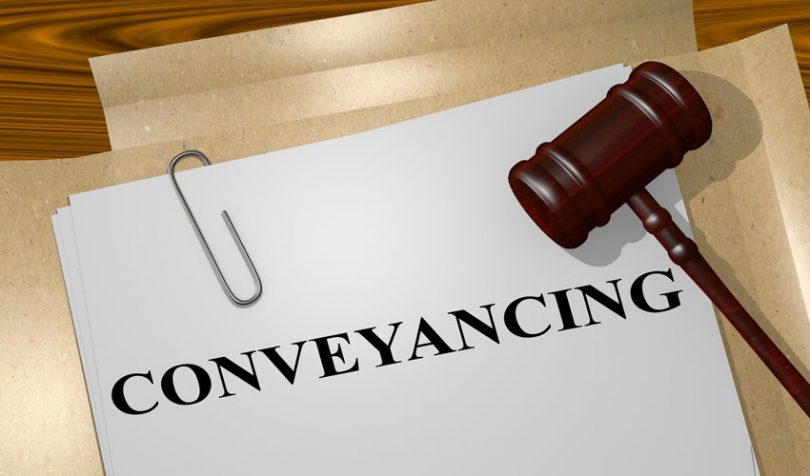What is conveyancing? .. Without the assistance of an experienced property lawyer to guide you through the conveyance procedure, purchasing your first property may be an intimidating experience.
The legal transfer from one owner to another is a conveyance. A convincing solicitor or licensed conveyance acts on behalf of the buyer to guarantee that the title deeds to the property and the land it sits on are delivered to their client.
What is conveyancing?
Conveyance encompasses all of the legal and administrative processes necessary to guarantee that a home acquisition is legal.

What is conveyancing?
Typical conveyance procedure
“Exchange of contracts” will be mentioned by your what is conveyancing? or mortgage lender. The buyer and seller exchange signed contracts, which are carried out by each party’s conveyance, which legally binds both parties to the sale of the property. So What is conveyancing?
A house purchase is not legally binding until the buyer and seller exchange contracts – this offers both parties freedom before the exchange of contracts. At the time of contract exchange, a deposit is required.
Before exchanging contracts, each party might cancel the transaction without incurring any responsibilities to the other. If you’re part of a long-moving chain, this could enhance your chances of being gasped.
The buyer and seller are legally bound to the purchase and the agreed-upon terms of the sale when the contracts are exchanged. You may forfeit the deposit you paid upon exchange if you decide to cancel the arrangement at this point.
Read more: Why do I need legal assistance to buy and sell a property?
What can you expect from your conveyance?
Is it possible to handle the meaning of what is conveyancing? Strictly speaking. However, because this is a complex and rather involved legal process, we strongly advise that you hire a knowledgeable and experienced property lawyer. Your lawyer will do the following for you:
- To obtain a contract package, contact the seller’s solicitor.
- A copy of your mortgage offer should be requested and received.
- Conduct the required local authority searches for the property.
- Meet with both parties to discuss possible completion dates.
- Exchange signed contracts with the seller’s conveyance.
- Make a deposit payment to the seller’s transportation.
- For you to finish, prepare the completion statement and transfer deeds.
- Send the sellers what conveyancing is? The signed transfer deeds.
- Make a payment request to your lender for the mortgage advance.
- Transfer the remaining purchase price balance to the seller’s conveyance (minus the deposit previously paid).
- HM Revenue & Customs requires you to file a tax return and pay the applicable Stamp Duty Land Tax.
- Send documents to the Land Registry relating to the transfer of ownership.
- Send your mortgage lender the title deeds.
- While your conveyance will do most of the legwork, you will be responsible for some aspects of the transaction.

What is conveyancing?
How to Locate a Reputable Conveyance Solicitor
A seasoned, meticulous what is conveyancing? It is worth their weight in gold. Using moving, you may compare up to four fast conveyance quotes from our extensive network of experienced conveyances from top-quality legal businesses in your region. You can rest confident that every passage in our network is regulated by the Solicitors Regulation Authority or the Council for Licensed Conveyances, whether you choose a conveyance solicitor or a licensed conveyance.
As you might expect, transferring property to a new owner entails a significant amount of effort, and a conveyance transaction typically involves three stages:
- pre-contract
- pre-completion
- post-completion
Typically, what is conveyancing? I will take care of everything and make sure you’re ready for important dates along the process.
They’re also in touch with the other party’s lawyers frequently to discuss the finer points of the case.
- Of course, you may save a few hundred dollars by filling out all the documents yourself.
- This is not suggested, as crossing all the i’s and dotting all the t’s is an arduous effort.
- Furthermore, you risk losing the property and your 10% investment if something goes wrong.
What is the role of conveyance?
A conveyance is a qualified practitioner who specializes in providing information and assistance about the sale of real estate.
What is conveyancing? They aren’t required to be solicitors, yet they do a lot of this work.
When buying or selling a home, subdividing land, or changing a title, it’s a good idea to hire a conveyance (i.e., registering a death)
An easement’s registration, modification, or removal
What is the role of conveyance?
As previously stated, the settlement process is overseen by a conveyance.
It may appear simple, but most house buyers and sellers are unaware of the amount of detail, documentation, and work into lawfully transferring a property to a new owner.
It could take weeks to discover and deposit legal paperwork, let alone understand them if you don’t know how to navigate the process.
And that’s only a tiny portion of the process; let’s look at what an expert can accomplish for each party.
A conveyance will do the following for the buyer:
- Prepare, explain, and file legal documents, such as a contract of sale and a transfer memorandum.
- Check for easements, kind of title, and any other information that needs to be addressed when researching the property and its certificate of title.
- Put the money from the deposit in a trust account.
- Calculate the rate and tax adjustments.
- Settle the property – act on your behalf and let you know when it’s done.
A conveyance will do the following for the seller:
Legal documents in their entirety
Represent you in negotiations with the buyer, such as requests for extensions of time, title questions, and so on.

What is conveyancing?
What is the best way to locate a conveyance?
You should sit down and talk to several conveyances before choosing one to supervise your settlement procedure, just as you would with prospective real estate agents.
Asking your friends and family for recommendations for a competent conveyance is a beautiful place to start. If nothing comes of it, conduct some online research and ask your real estate agent, accountant, and lawyer for advice.
Once you’ve compiled a list of potential conveyances, call them and ask them a few questions (see below) to determine which one best suits your needs.
Read more: Is bank robbery a felony? AND What are the terms of the felony?